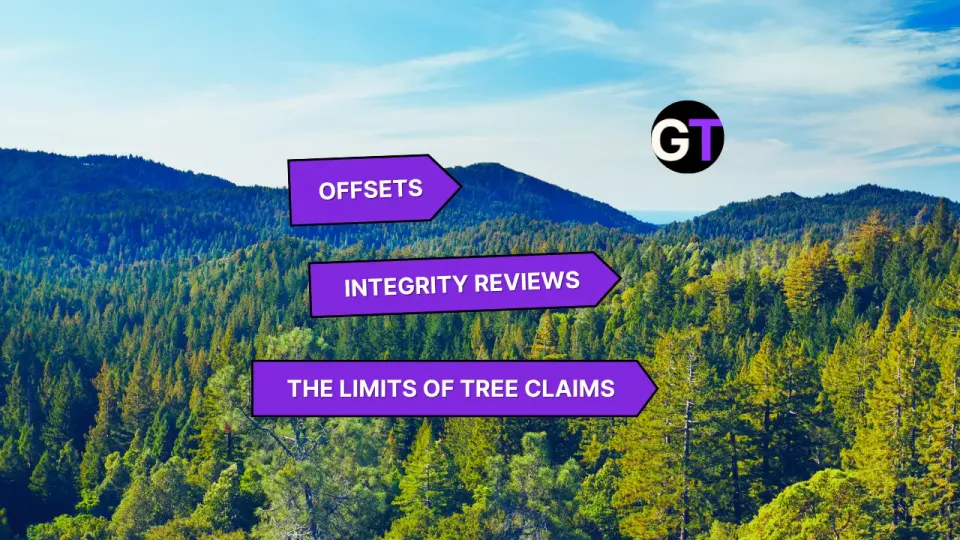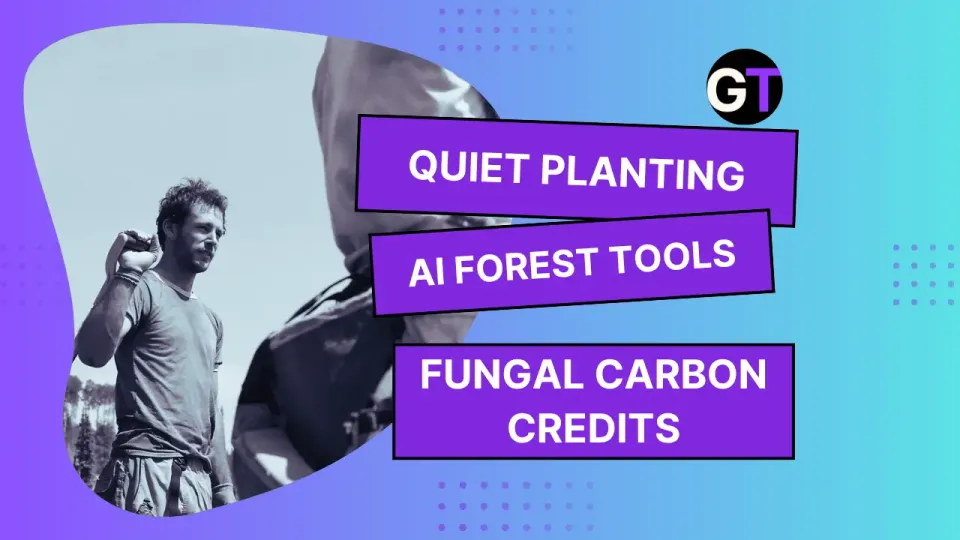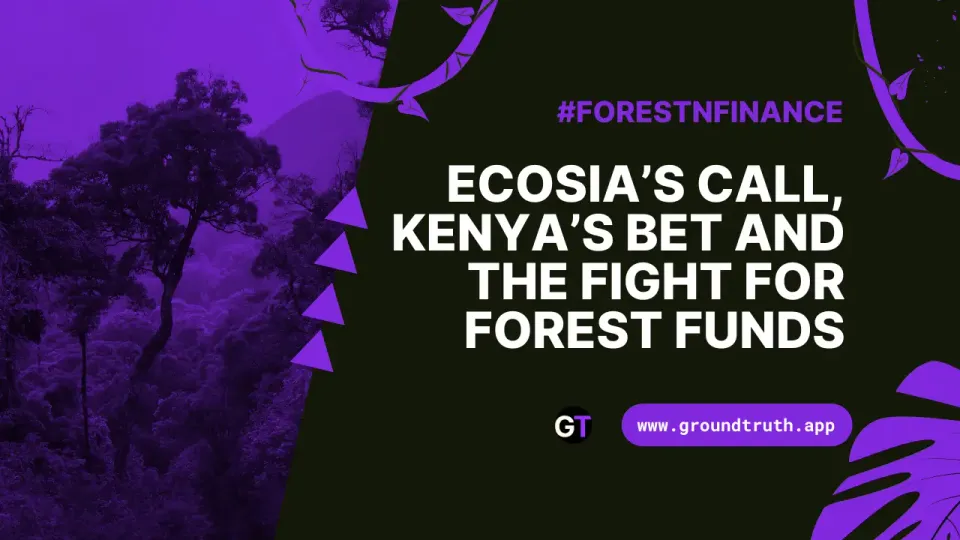Scientists Argue for "Real Zero" 0️⃣
The “Real Zero Pledge” from the Lethal Humidity Global Council is all about cutting emissions for real.

Getting to the Core of Climate Action 🌍
As the world races against time to avert climate catastrophe, reliance on carbon offsets is being called into question. More than 60 climate scientists, representing countries from the UK, US, and Australia, warn that carbon offsets—especially those from forest-related projects like planting trees—may be doing more harm than good. Their message is clear: we need to aim for "real zero" emissions, not just "net zero." Their language is bold, and their solution is controversial:
"In addition, offsets based on natural carbon sinks do not take into account that these sinks are already weakening due to climate change – and are, at best, simply temporary. Real Zero is far harder than Net Zero. But it is the only path that can prevent further escalation of climate impacts."
Real Zero and Beyond 🚫💨
The “Real Zero Pledge” from the Lethal Humidity Global Council is all about cutting emissions for real. Signatories like climate heavyweights Prof. Michael Mann and Prof. Johan Rockström argue that we can’t just balance emissions on paper—we need to actually reduce them. This means phasing out fossil fuels completely, rather than using offsets as a workaround. They stress that in their view, the timelines in the Paris Agreement don’t leave much room offsetting, which they see as a half-measure.
And it’s not just academics backing this shift. Andrew Forrest, an Australian billionaire and co-founder of the Minderoo Foundation, is known for his background in iron ore mining. But despite his ties to that industry, he’s emerged as a strong voice against relying on “net zero” strategies that lean on carbon offsets. He’s calling for a full stop on fossil fuel use, making waves by challenging the usual way of doing things.
Source: The Art of Integrity, Ecosystem Marketplace’s State of the Voluntary Carbon Markets 2022 Q3
Finding Balance ⚖️
Of course, not everyone is convinced. Some experts, including those at the World Economic Forum, see carbon offsets as a crucial piece of the climate puzzle. They argue that while offsets aren’t a replacement for reducing emissions directly, they can help preserve natural carbon sinks—like forests—and support local communities.
Bronson Griscom of Conservation International, for example, points to success stories like a project in the Peruvian Amazon that slashed deforestation by 75%, preventing more than 6 million tons of carbon emissions. And it’s not just about carbon—these projects can mean better healthcare, new skills, and economic opportunities for local communities, making the future a little greener and a little fairer.
What’s the Real Story with Offsets? 🌿📉
Carbon offsets have become the go-to tool for companies looking to shrink their carbon footprint—at least on paper. These projects often involve planting trees, preserving forests, or even preventing deforestation. But critics like the Lethal Humidity Global Council say that these methods might not be as effective as they seem. When forests burn or trees die from droughts, they release the stored carbon back into the atmosphere, which means those “gains” can quickly disappear.
And this skepticism isn’t new. Back in 2006, people were already comparing carbon credits to selling indulgences—a practice where the Catholic Church would grant forgiveness in exchange for money. The comparison is simple: just like paying for forgiveness instead of changing behavior, buying carbon credits can feel like a way for companies to buy a clean conscience without actually cutting emissions.
Meeting Existing Challenges 🌍💬
Carbon markets, especially the ones under Article 6 of the Paris Agreement, are more complicated than they might seem. They’re supposed to ensure that carbon credits translate into real, extra reductions in global emissions. But in practice, things get tricky—like when two countries both claim credit for the same emission reductions. Many governments and companies push back against these extra rules because they’re costly and take a lot of time. And then there’s the big question: what happens if those projects, like a forest, go up in smoke?
Maggie Comstock, a climate policy expert, responds with an interesting metaphor: "Imagine you're in the market for a new house," she told Conservation International. "Sure, there's a chance it could catch fire someday. But you don't avoid buying a house because of that risk. Instead, you manage the risk—buy insurance, set up fire alarms."
Communications expert Bruno Vander Velde offers another analogy: think back to 2020, when we were all talking about "flattening the curve" during the pandemic. Carbon offsets work in a similar way, he argues. They can help slow down emissions, giving us a little more time to avoid hitting those critical climate tipping points—like preserving forests or restoring wetlands. Even if they’re temporary, they can help hold off the worst effects while we work on long-term solutions.
These projects can keep carbon out of the atmosphere a little longer, protect important ecosystems, and bring tangible benefits to local communities. While permanent cuts to emissions are the ultimate goal, even temporary offsets can make a difference, as long as they don’t lead to a big rebound later.
The Road Ahead: Navigating a Complex Debate 🌿🌍
The future of carbon offsets is a hot topic, and there aren’t any easy answers. Some believe that "real zero" is the only sure path to a stable climate, while others see offsets as a useful tool that can work alongside direct emission cuts. What’s clear is that each side has its own hurdles and potential benefits. As the world tries to balance immediate action with sustainable, long-term solutions, the conversation about carbon markets and offsets will keep evolving. It’s a tricky balancing act—one that needs clear data, transparency, and a focus on the environment and people.
We’re racing against time to meet global climate goals, and the stakes couldn’t be higher. Delays—whether in cutting emissions directly or using carbon markets wisely—come with serious risks, like speeding up global warming and putting fragile ecosystems in danger. Scientists agree: we need to act now to slow rising temperatures. Whether that means reducing emissions at their source or using offsets as a stepping stone, we need to focus on fast, effective solutions.




